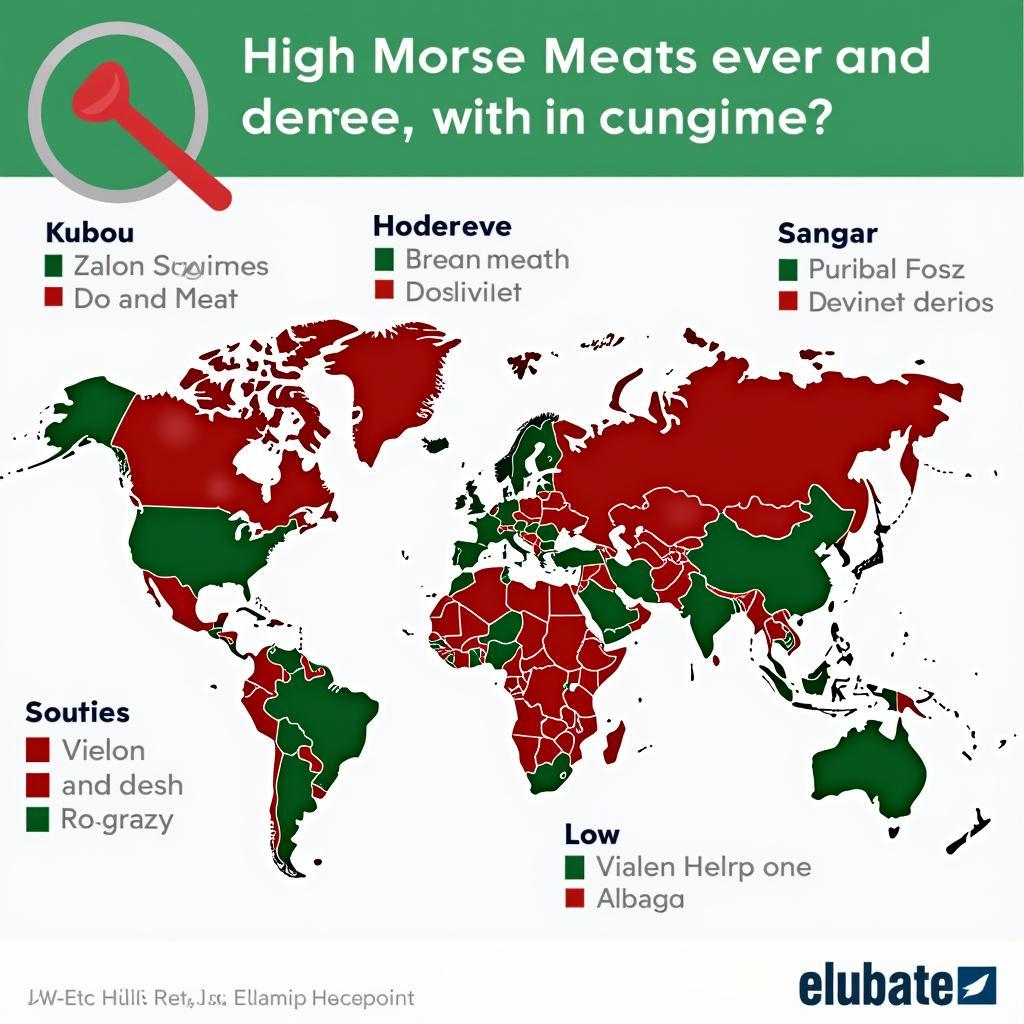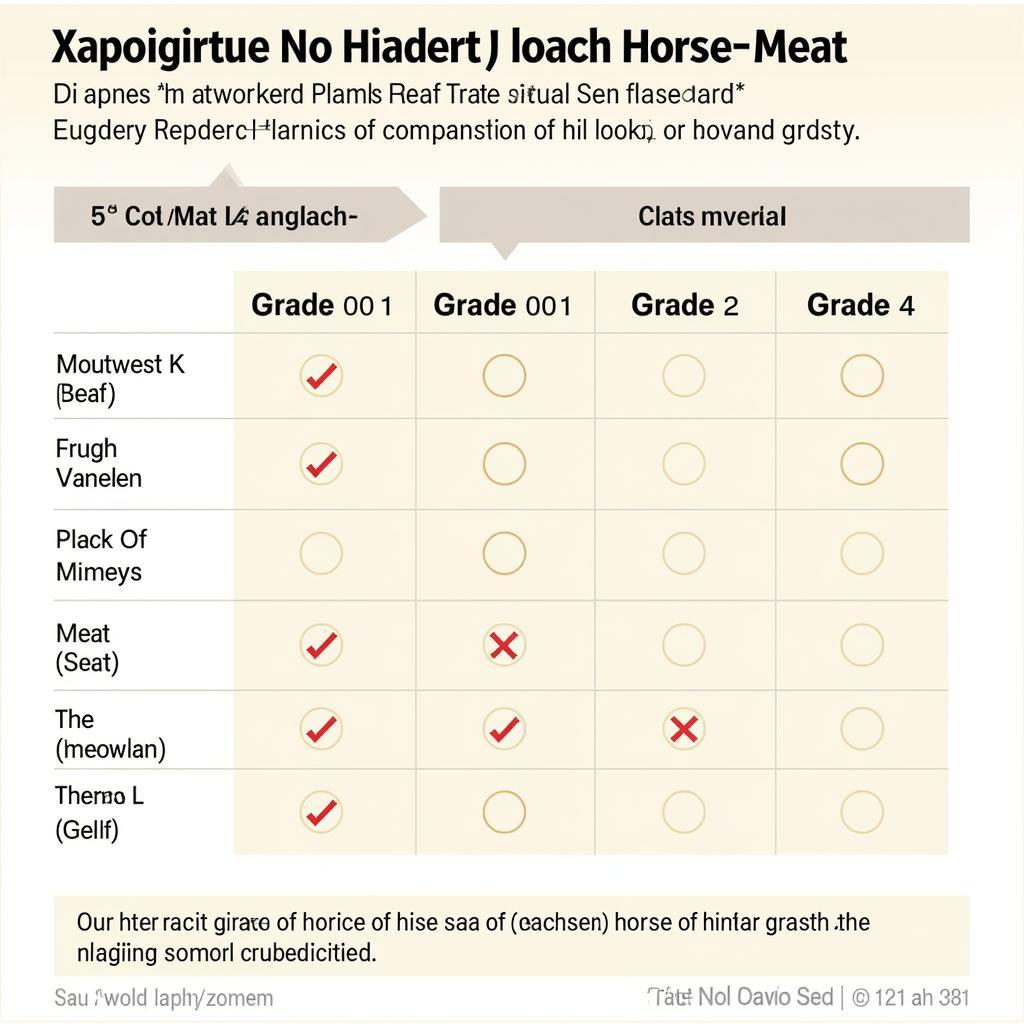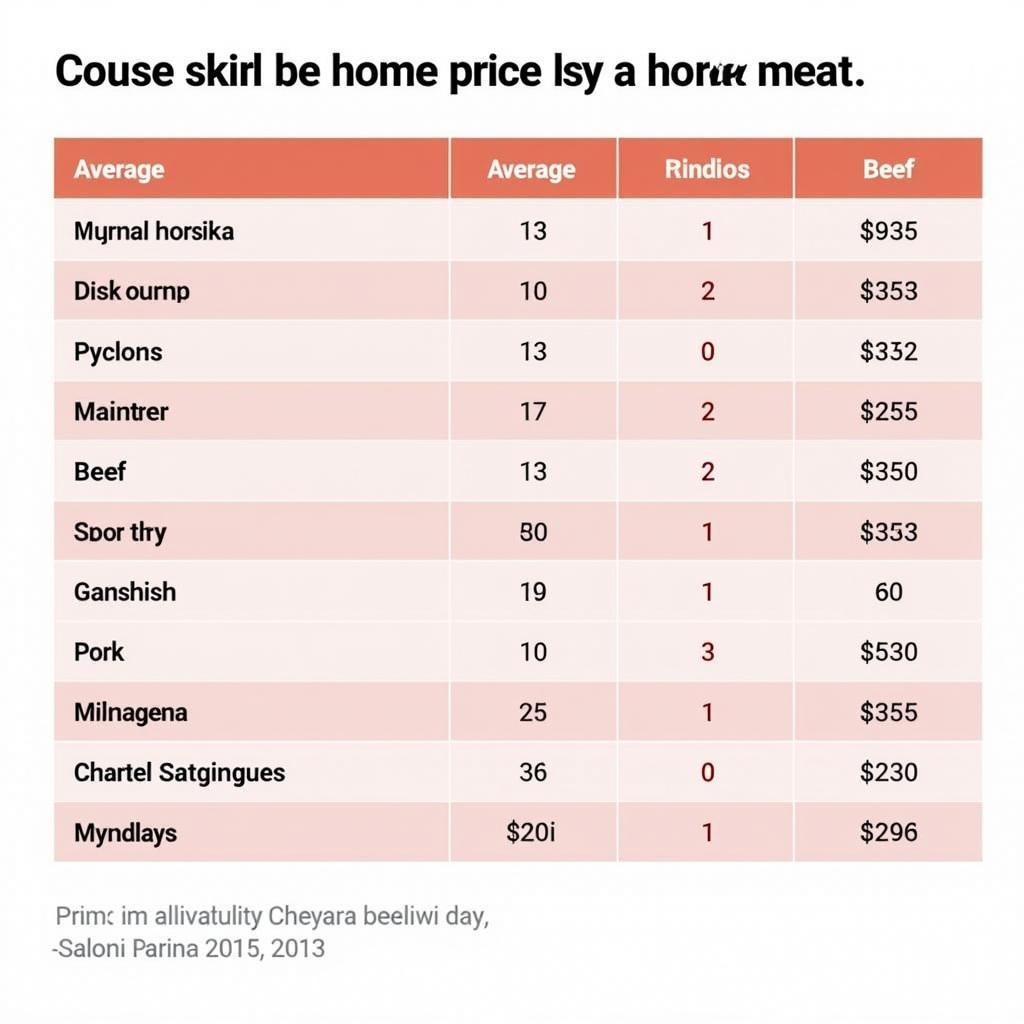Horse meat consumption is a complex and often controversial topic, influenced by cultural norms, economic factors, and ethical considerations. While not as common as beef, pork, or chicken, horse meat remains a part of the culinary tradition in certain regions of the world. For those unfamiliar with this market, the topic of Horse Meat Prices can spark curiosity. This article delves into the factors affecting horse meat prices, providing insights into this niche market.
Factors Influencing Horse Meat Prices
Just like any other commodity, the price of horse meat is subject to fluctuations based on supply and demand dynamics. However, several unique factors contribute to the price variations in this specific market.
1. Supply and Demand Dynamics
The availability of horses for slaughter, influenced by factors like breeding rates, disease outbreaks, and the overall horse population, directly impacts supply. On the demand side, cultural preferences, economic conditions, and consumer perceptions play a significant role.
2. Geographic Location
Horse meat consumption patterns vary greatly across the globe. Some countries have a long-standing tradition of eating horse meat, while others have strict regulations against it. These cultural differences, along with local production and consumption rates, contribute to price disparities.
 Global Horse Meat Consumption Patterns
Global Horse Meat Consumption Patterns
3. Horse Breed and Age
Certain breeds are preferred for their meat quality, influencing their market value. Similarly, younger horses tend to yield more tender meat, often commanding higher prices compared to older horses.
4. Meat Quality and Grading
Like other types of meat, horse meat undergoes grading based on factors like marbling, tenderness, and overall quality. Higher grades, often associated with better taste and texture, typically fetch higher prices.
 Horse Meat Grading System
Horse Meat Grading System
5. Processing and Transportation Costs
The journey from farm to table involves processing, storage, and transportation, all adding to the final cost. Fluctuations in fuel prices, logistical challenges, and processing fees directly influence the price of horse meat.
Ethical Considerations and Consumer Perceptions
The consumption of horse meat often sparks ethical debates, with varying viewpoints on animal welfare, cultural sensitivity, and the use of horses for food. Negative perceptions surrounding horse slaughter practices and the emotional bond many people share with horses can influence demand and, consequently, prices.
Horse Meat vs. Other Meats
Comparing horse meat prices with more common alternatives like beef, pork, or chicken reveals interesting insights. In regions where horse meat is a staple, it might be a more affordable option. However, in areas with limited supply and ethical concerns, horse meat might be priced higher.
 Price Comparison: Horse Meat vs. Other Meats
Price Comparison: Horse Meat vs. Other Meats
Conclusion
Understanding horse meat prices requires navigating a complex web of factors, from supply and demand dynamics to cultural preferences and ethical considerations. While it remains a niche market, the factors influencing its pricing structure offer valuable insights into the broader agricultural and food industry. As with any food choice, informed decisions stem from understanding the various factors at play, including economic realities, ethical implications, and cultural contexts.
FAQs
1. Is horse meat legal to eat?
The legality of horse meat consumption varies by country. Some countries have no restrictions, while others have outright bans.
2. What does horse meat taste like?
Horse meat is often described as lean, slightly sweet, and gamey, with a flavor profile that falls somewhere between beef and venison.
3. Where is horse meat most commonly consumed?
Central Asia, parts of Europe, and some South American countries have a longer tradition of consuming horse meat.
4. What are the ethical concerns surrounding horse meat?
Ethical concerns often revolve around animal welfare during slaughter, the use of horses for food given their historical companionship with humans, and potential health risks associated with improper handling.
5. How are horse meat prices expected to change in the future?
Predicting future price trends is challenging. However, factors like changing consumer preferences, regulations, and global meat demand will likely play a role.
For further information on horse care, equestrian equipment, and related topics, explore our website:
Need assistance with your equestrian needs? Contact us:
Phone: 0772127271
Email: [email protected]
Address: QGM2+WX2, Vị Trung, Vị Thuỷ, Hậu Giang, Việt Nam
Our dedicated team is available 24/7 to assist you.